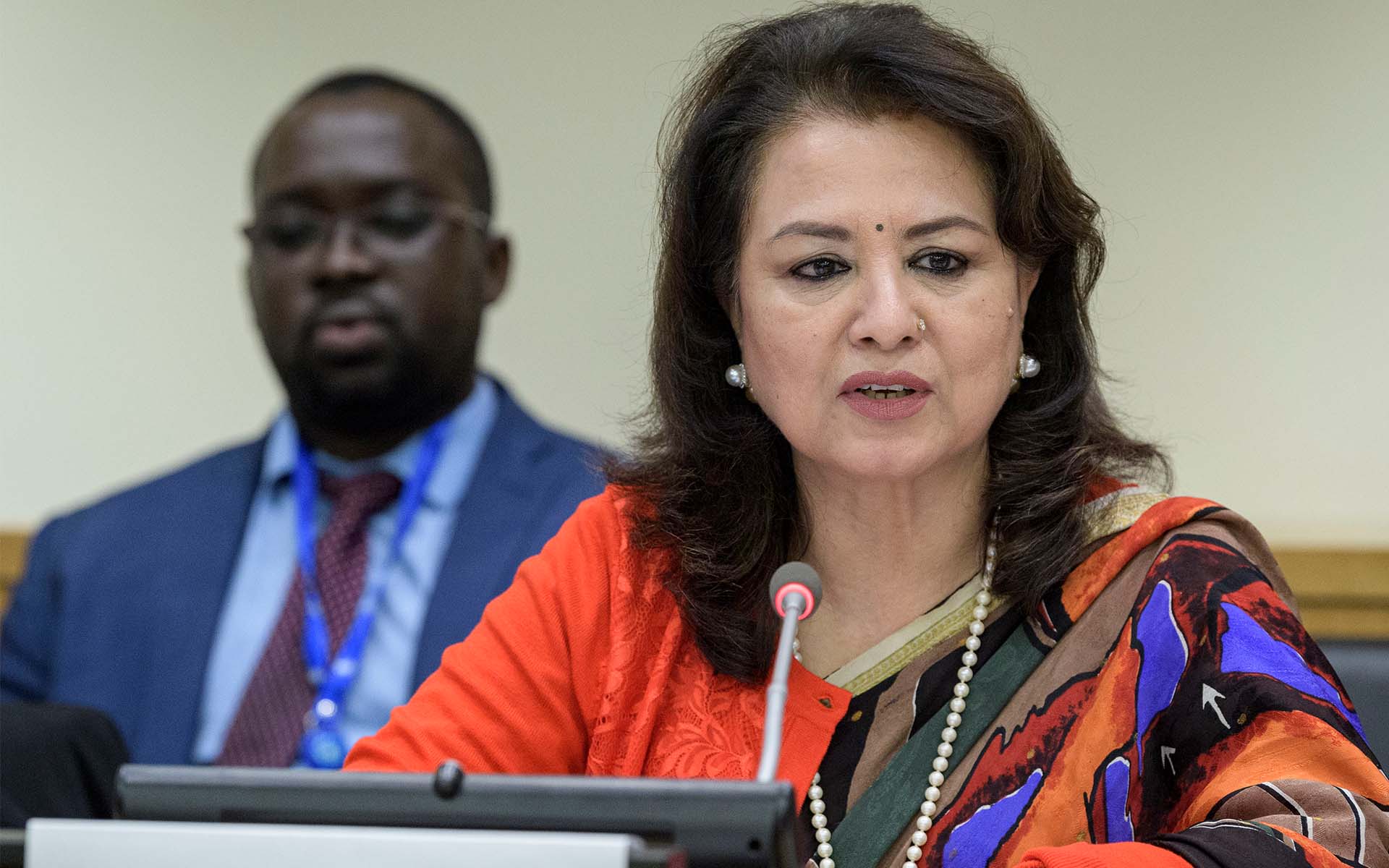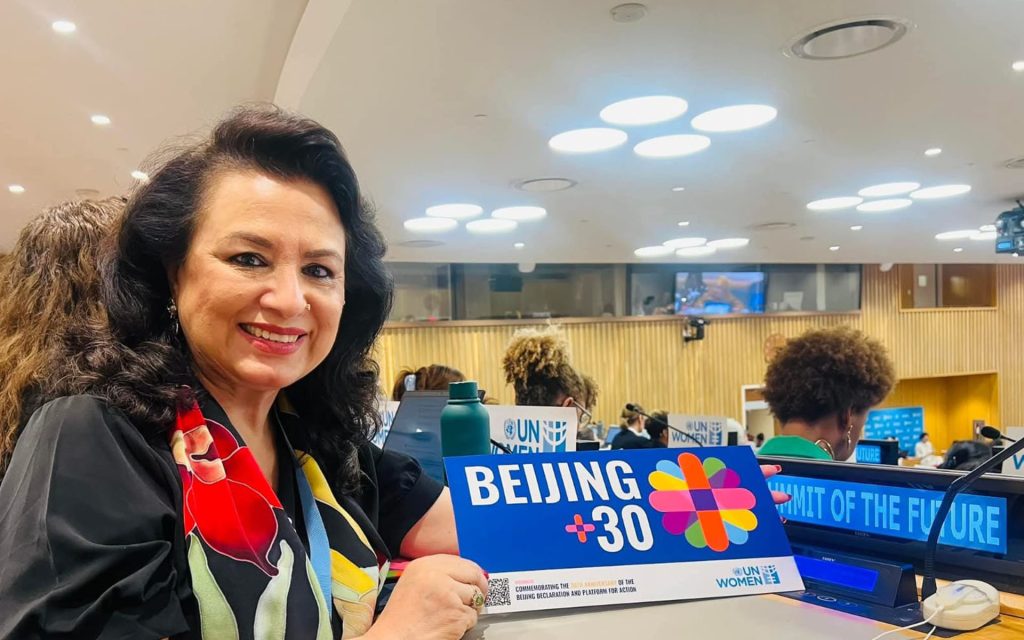
The Convention on the Elimination of All Forms of Discrimination Against Women (CEDAW), widely referred to as the international bill of rights for women, stands as one of the most powerful instruments of international human rights law. It obligates State Parties to eliminate discrimination against women in all spheres—legal, social, political, economic, and cultural—and provides a comprehensive framework for achieving gender equality.
As a gender activist in Nepal, I had long regarded CEDAW as a powerful advocacy tool. Over the years, I actively engaged in mobilizing civil society to use the Committee’s Concluding Observations to advocate for progressive reforms. From the passage of the Domestic Violence Act to ensuring gender-responsive provisions in Nepal’s 2015 Constitution and pushing for reforms on harmful practices and reproductive rights—CEDAW was at the heart of our advocacy.
My first direct engagement with the Committee dates back to 1999, when Nepal presented its first periodic report. I was part of the NGO delegation to New York, helping to prepare and present the shadow report. The experience left a lasting impression. I never imagined that nearly two decades later, I would sit on the other side of the table as a member of the very Committee I once lobbied.
In early 2016, shortly after retiring as the Executive President of Saathi—a leading Nepali NGO working on violence against women—I was encouraged by international colleagues to stand for CEDAW elections. At first, I hesitated. No Nepali had ever served on the Committee, and I had little understanding of the diplomatic and political maneuvering involved in the election process. Yet, with time on my hands and a lifetime of experience behind me, I decided to take the leap.
Navigating the nomination process was not easy. It took numerous follow-ups with Nepal’s Ministry of Foreign Affairs, persistent advocacy, and ultimately, a Cabinet-level decision to put forward my candidature. What followed was a whirlwind of lobbying missions—New York, Geneva, Delhi, Istanbul. On June 21, 2016, I was elected to the CEDAW Committee with 106 votes, ranking 6th among the elected candidates.
Today, I am proud to be serving my third term on the Committee. In my second election in 2020, I received 136 votes, ranking third, and in the most recent election in June 2024, I secured the highest votes—146—testament to the trust and confidence of Member States in my work. These re-elections reflect not only deeper familiarity with the Committee’s processes but also a strengthened ability to contribute substantively, including through key leadership roles.

My sustained re-elections are in part due to the substantive roles I have played. I chaired the Task Force on Afghanistan, which was instrumental in responding to the unprecedented rollback of women’s rights. As Co-Chair of the Working Group on Gender Stereotypes, I am presently contributing to transformative work on challenging entrenched norms that continue to hold women back. These responsibilities require not just legal acumen, but political sensitivity, cultural understanding, and deep commitment to feminist values.
What I bring to the Committee is shaped by over 30 years of work on the frontlines—engaging in saving lives, promoting equality, building peace, and creating opportunities. From grassroots initiatives to high-level policymaking, I’ve consistently worked to address the legal, economic, and political constraints on women’s advancement. I have advised states on the implementation of the Women, Peace and Security Agenda under UNSCR 1325 and collaborated with civil society networks to localize these commitments in conflict-affected settings.
Throughout my journey, I have remained grounded in the belief that international human rights mechanisms must not remain distant from the realities on the ground. During the COVID-19 pandemic, for instance, I initiated a series of national and regional dialogues between governments and civil society to highlight and address the disproportionate impacts on women. These dialogues enabled holistic, rights-based responses during an unprecedented crisis.
One of the most challenging and impactful moments in my tenure came during the most recent session in June 2025, when I led the constructive dialogue on Afghanistan. Given the grave and systematic violations of women’s and girls’ rights under the de facto authorities, it was an emotionally and politically charged responsibility. The Afghan women’s voices—many speaking from exile—echoed a heartbreaking reality of erasure and oppression. Despite the challenges, we were able to draw global attention to the alarming situation and consolidate a comprehensive list of Concluding Observations. These included concrete recommendations addressed not only to the de facto authorities but also to the international community, UN agencies, and other stakeholders. The process reaffirmed the role of CEDAW as a critical platform for global accountability and solidarity with women in crisis.
Serving on the CEDAW Committee has been a humbling and transformative experience. It has deepened my conviction that when women’s voices are heard in international forums, global standards become more inclusive, responsive, and just. It has also reminded me that the struggle for gender equality is not linear—it requires constant vigilance, renewed solidarity, and tireless effort.
As I continue my work, I carry with me the voices of countless women and girls from the villages of Nepal and Asia to the corridors of the United Nations. Their resilience fuels my resolve. CEDAW is not just a treaty—it is a promise. A promise to every girl that her dreams are valid. A promise to every woman that she will be treated with dignity and equality. And as long as I serve, I will do my part to keep that promise alive.
The Journey Continues…